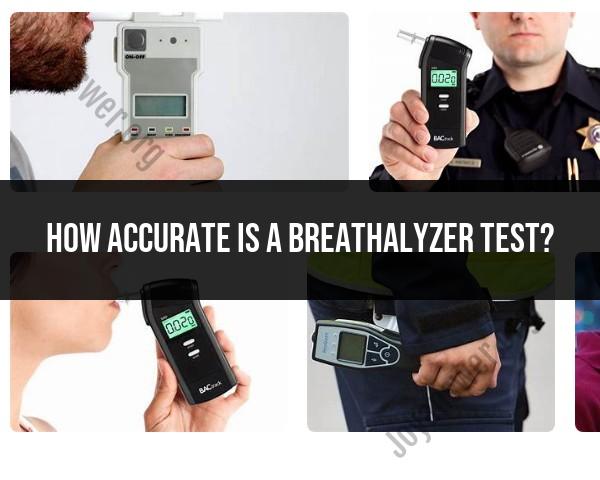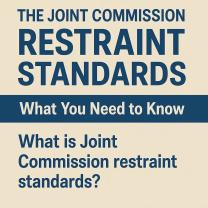How accurate is a breathalyzer test?
The accuracy of a breathalyzer test, which is used to measure blood alcohol concentration (BAC), can vary depending on several factors. Generally, breathalyzer tests are considered reasonably accurate when administered properly, but there are limitations to their precision. Here are key considerations:
Calibration:
- Regular calibration of the breathalyzer device is crucial for accuracy. If a device is not calibrated correctly or if it is overdue for calibration, the results may be less reliable.
User Errors:
- Proper administration of the test is essential. If the person administering the test doesn't follow the correct procedures, the results may be compromised.
Individual Variations:
- BAC can vary between individuals due to factors such as metabolism, body composition, and health conditions. Breathalyzer tests provide an estimate of BAC and may not precisely reflect the concentration in the blood.
Time Lag:
- There can be a time lag between alcohol consumption and when it appears in the breath. This means that the BAC measured by a breathalyzer might not represent the person's BAC at the time of driving.
Environmental Factors:
- Environmental factors, such as residual mouth alcohol or certain substances in the environment, can influence breathalyzer results.
Device Sensitivity:
- The sensitivity of different breathalyzer models can vary. Some devices may be more prone to interference or may not be as accurate as others.
Mouthwash and Breath Fresheners:
- Some mouthwashes and breath fresheners contain alcohol, and their use shortly before a breathalyzer test can lead to higher BAC readings.
Medical Conditions:
- Certain medical conditions, such as diabetes or acid reflux, can affect breathalyzer results.
Rising BAC:
- If a person has recently consumed alcohol, their BAC may be rising, and the breathalyzer result might not accurately reflect the level at the time of driving.
While breathalyzer tests are widely used for screening purposes, it's important to note that they are not infallible. If the results of a breathalyzer test are contested, it may be necessary to conduct additional tests, such as a blood test, for a more accurate measurement of BAC. Legal standards for BAC limits can vary by jurisdiction, and individuals should be aware of the regulations in their specific location.
Factors Affecting Breathalyzer Accuracy:
Several factors can affect the accuracy of a breathalyzer test, leading to potentially misleading blood alcohol content (BAC) readings. Here are some key factors to consider:
1. Calibration and Maintenance:
- Breathalyzers require regular calibration to ensure accuracy. Improperly calibrated devices can give false readings.
- Maintenance also plays a crucial role, as worn-out sensors and components can affect the device's ability to correctly measure alcohol levels.
2. Environmental Conditions:
- Temperature and humidity can influence the breathalyzer's readings. Extreme temperatures can affect the device's sensitivity, leading to inaccurate results.
- Altitude can also affect readings, as alcohol vapor pressure changes with air pressure.
3. Individual Factors:
- Metabolism: Individual metabolic rates vary, affecting how quickly the body absorbs and eliminates alcohol. This can lead to discrepancies between BAC levels and breathalyzer readings.
- Body temperature: Body temperature can influence the amount of alcohol in breath samples, potentially affecting the accuracy of the test.
- Recent food intake: Eating food shortly before taking a breathalyzer test can temporarily raise BAC readings, leading to false positives.
4. Other substances:
- Certain volatile substances like mouthwash, acetone, or paint fumes can interfere with the breathalyzer's sensor, leading to inaccurate readings.
- Medical conditions like diabetes or ketosis can also affect breathalyzer results due to the presence of alternative compounds.
5. Time of test:
- Breathalyzer readings are most accurate shortly after alcohol consumption, as alcohol levels in breath peak approximately 15-20 minutes after the last drink.
- As time passes, the body metabolizes alcohol, leading to lower BAC levels and potentially inaccurate readings.
Reliability of Breathalyzer Results:
While breathalyzers are widely used for law enforcement purposes, their accuracy can be influenced by various factors, making them imperfect tools for measuring BAC.
Here's a breakdown of their reliability:
- Under ideal conditions: With proper calibration, maintenance, and adherence to testing procedures, breathalyzers can be relatively accurate, providing a good estimate of BAC levels.
- Real-world situations: Due to the numerous factors that can influence their accuracy, breathalyzer results should be interpreted with caution and not considered definitive proof of intoxication.
- Legal considerations: In court cases, breathalyzer results are often used as evidence, but they may be challenged by defense attorneys based on potential errors or influencing factors.
Overall, breathalyzers can be a helpful tool for estimating BAC levels, but they are not foolproof. It's crucial to consider the factors that can affect their accuracy and interpret the results with caution.











